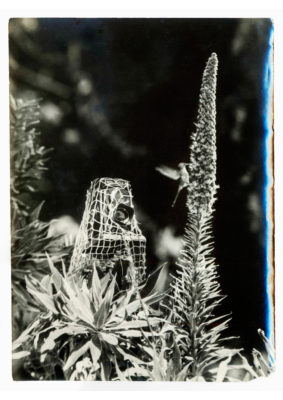Marco Poloni
Italian and Swiss artist, filmmaker and photographer born in Amsterdam in 1962, Marco Poloni has lived and worked around the world from Rome to New York, Chicago to Geneva. He currently divides his time between Berlin and Lausanne, where he is a Professor of Photography at ECAL (Ecole cantonale d’art, Lausanne). His work extends beyond the photographic image, exploring the relation with text, film, and installation. His recent series are specifically concerned with the emergence of subjects who are made socially invisible by apparatuses of social capture, or who choose to evade social entanglement in their attempt to weave new pathways. He has been awarded the Swiss Art Award three times, in 1997, 2000, and 2001, and he was one of the artists representing Switzerland at the Venice Biennale in 2005.
Project
The Pistol of Monika Ertl
Marco Poloni presents an international crime story: starting from the Italian millionaire publisher and revolutionary Feltrinelli, his constellation of photographs found in archives takes us, from the story of the assassination in Hamburg of the Bolivian police chief who presided the killing of Che Guevara, into the intricacies of an underground revolutionary network active between the 60s and the 70s.
“My submission to the Prix Elysée is a project I am currently active with. It is a “case study” that is part of a constellation of works that I will expand over the coming years.
All the “case studies” of this constellation fan out of the complex figure of Giangiacomo Feltrinelli. Millionaire and revolutionary, Feltrinelli founded the publishing firm that bears his name, and was active in the Mediterranean area within the anti-imperialist movements of the 60s and 70s under the battle name of compañero Osvaldo. My work is not an attempt to build a biography of the charismatic and complex figure of Feltrinelli. It is an attempt to examine, through little-known aspects of his life and work, a number of radical social and political ideas of the 60s and 70s, and an effort to explore the insurrectionary galaxy of that historical moment.
The “case study” I am submitting is, so to speak, an international crime story. This constellation of photographs narrates the killing in 1971 of Roberto Quintanilla, the General Consul of Bolivia in Hamburg, by a German, Monika Ertl. As head of the Bolivian secret police, Quintanilla captured Che Guevara in the Bolivian jungle in October 1967, and commanded his summary execution. For the guerrilla, Quintanilla had to be eliminated. Monika Ertl was the favourite daughter of cinematographer and photographer Hans Ertl, the director of photography for Leni Riefenstahl’s controversial 1938 documentary film Olympia about the 1936 Summer Olympics held in Berlin. Ertl had settled with his family in Bolivia after the war ended. Monika joined the Bolivian Liberation Army, and received her military training in Chile and Cuba. The revolver she used to terminate Quintanilla during her mission to Hamburg was given to her by Feltrinelli.
The work attempts to expose an intricate international network of relationships between underground actants of the international insurrectionary moment between the 60s and the 70s. The installative form of the work is conceived as a reflexion on the loose connectivity of the revolutionary galaxy of that period and on our fragmentary knowledge of it, as well as on the structure of memory in general. The elements of this work are visual knots between which a loose net is stretched. Rather than being constituted as an indexical chain, this constellation of images and texts forms a porous narrative in which meaning is generated through the spatial disposition of clusters of images.”






